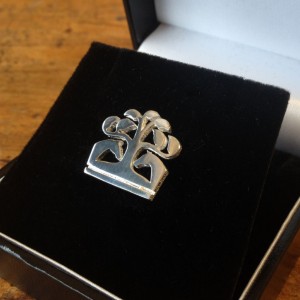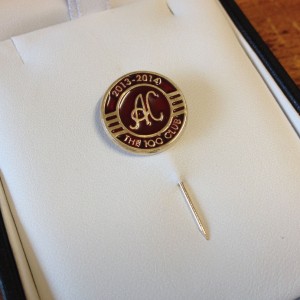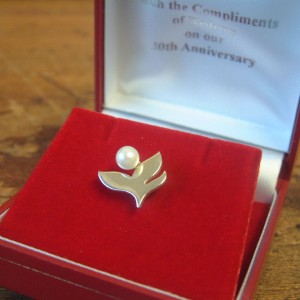
Redrow Hallmarked Sterling Silver Pin Badge With Pearl
Date:
As well as producing an array of base metal items with new technology, when it comes to precious metal items such as 9ct, 18ct gold and sterling silver, our in house craftsman Mark Elliott sticks to the same traditional hand finished methods he used when he acquired his unique Sheffield hallmark over 35 years ago. Items we have made from 9ct, 18ct gold and sterling silver include but are not limited to lapel pins, stick pins, cufflinks, pendants, earrings and charms.
A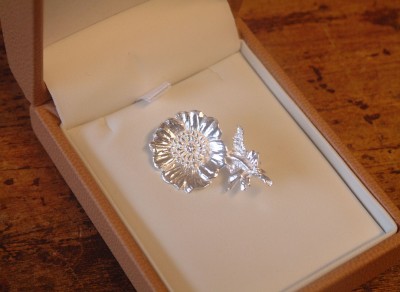 ll our items are tailor made allowing us to offer a variety of products in precious metals. This means your company logo or product can be turned into a prestigious piece of jewellery that will be treasured by the recipient and worn with pride. Below we have listed all the steps involved.
ll our items are tailor made allowing us to offer a variety of products in precious metals. This means your company logo or product can be turned into a prestigious piece of jewellery that will be treasured by the recipient and worn with pride. Below we have listed all the steps involved.
First we make a prototype metal model by hand. Usually this is done by sculpting a piece of wax into the desired shape, pattern or logo, which is then cast in metal. This is called the master (the prototype). The master is then polished and finished using small burrs, files and abrasive powders to make the first finished piece.
The master is then laid on to layers of rubber, which is heated up and forms aro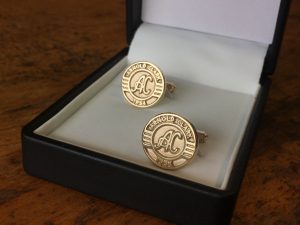 und the master. This process is called vulcanisation. The master is carefully cut out from the rubber, leaving the impression in the rubber. Wax is then injected into the mold, left to dry and removed. These waxes are an exact copy of the metal master. This process is then repeated until the required number of waxes is produced.
und the master. This process is called vulcanisation. The master is carefully cut out from the rubber, leaving the impression in the rubber. Wax is then injected into the mold, left to dry and removed. These waxes are an exact copy of the metal master. This process is then repeated until the required number of waxes is produced.
The waxes are then attached to a centre wax spru, forming a tree like shape with the waxes acting as the branches. The wax tree containing all the waxes is then put into a metal cylinder called a flask, which is filled with a plaster type substance called investment and allowed to solidify and harden. The flask in then placed into a kiln, burning the wax out and leaving a cavity in the shape of the wax tree. The flask is taken out of the kiln and put into a vacuum casting machine that heats up the 9ct, 18ct gold and sterling silver metal to the correct temperature and poured into the hole where the wax had melted out. The vacuum 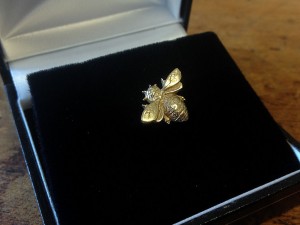 casting machine ensures that any air inside the mold is removed, so the castings have little to no porosity (air inside). The flask is then plunged into a water tank, which ensures all the investment (plaster) is removed. This leaves you with a metal tree with the branches being the original wax castings but in precious metal instead.
casting machine ensures that any air inside the mold is removed, so the castings have little to no porosity (air inside). The flask is then plunged into a water tank, which ensures all the investment (plaster) is removed. This leaves you with a metal tree with the branches being the original wax castings but in precious metal instead.
In the final stage, the metal castings are cut away from the tree and cleaned up in a centrifugal polisher. Each piece is finished by hand to make sure there are no small blemishes/imperfections and then buffed and polished by hand, leaving a high quality look, feel and finish. The finished pieces are then sent off to the Sheffield Assay office for hallmarking, ensuring the recipients of their authenticity and pedigree.
If you would like any more information regarding our 9ct, 18ct gold and sterling silver items or have a design in mind, please don’t hesitate to use the contact form and get in touch.
